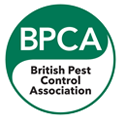Harlequin Ladybirds
In Pests
This year as in the previous 5 years PEST UK is getting a lot of phone calls and e mails with complaints involving Harlequin Ladybirds. These pest control problems involve Harlequin Ladybirds coming into buildings to hibernate or in the Spring when they leave.. These are recent immigrants from Europe and are the Harlequin Ladybirds. These are larger than the native British Ladybird but seem to be displacing the British variety. This is bad news for the British Ladybird but good news for pest controllers. The main behavioural differences between the two types are that the Harlequin Ladybird hibernate in large groups. They hibernate in buildings where as the British Ladybird hibernated outside. This factor leads to the Harlequin Ladybirds invading buildings in great numbers in the Autumn & early Winter. They will hibernate in window frames, lofts, cavity walls in fact any dark cavity.

We offer treatments for Harlequin Ladybirds tailored to the circumstances. Prices for Harlequin Ladybirds vary between £65.00 + VAT to £135.00 + VAT, depending on the type of treatment required. The size of the area to be treated is also a factor in price. Any pest control treatments with Harlequin Ladybirds will only reduce, not eliminate the problem. There may additional problems in the Spring when any survivors of any pest control treatments emerge from hibernation. This re occurrence is rarer in Harlequin Ladybirds than in other hibernating insects such as Cluster Flies but is a possibility.

PEST UK is a company established over 26 years ago with some of the most experienced pest control technicians in the UK. We offer treatments for all aspects of pest control from £65.00 + VAT.

For any pest control or to book a pest control treatment call: 0330 100 2811 (local rate from landlines & mobiles) or 0800 026 0308 (free phone from landlines and some mobiles). The PEST UK telephone operator (all the staff at PEST UK are trained in pest control) can book up an hour slot for an appointment between 8am and 6pm (7pm in the summer).

For more information see the PEST UK web page: Ladybirds

